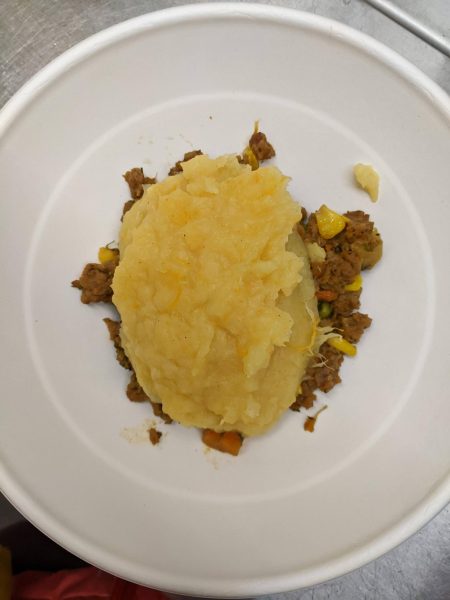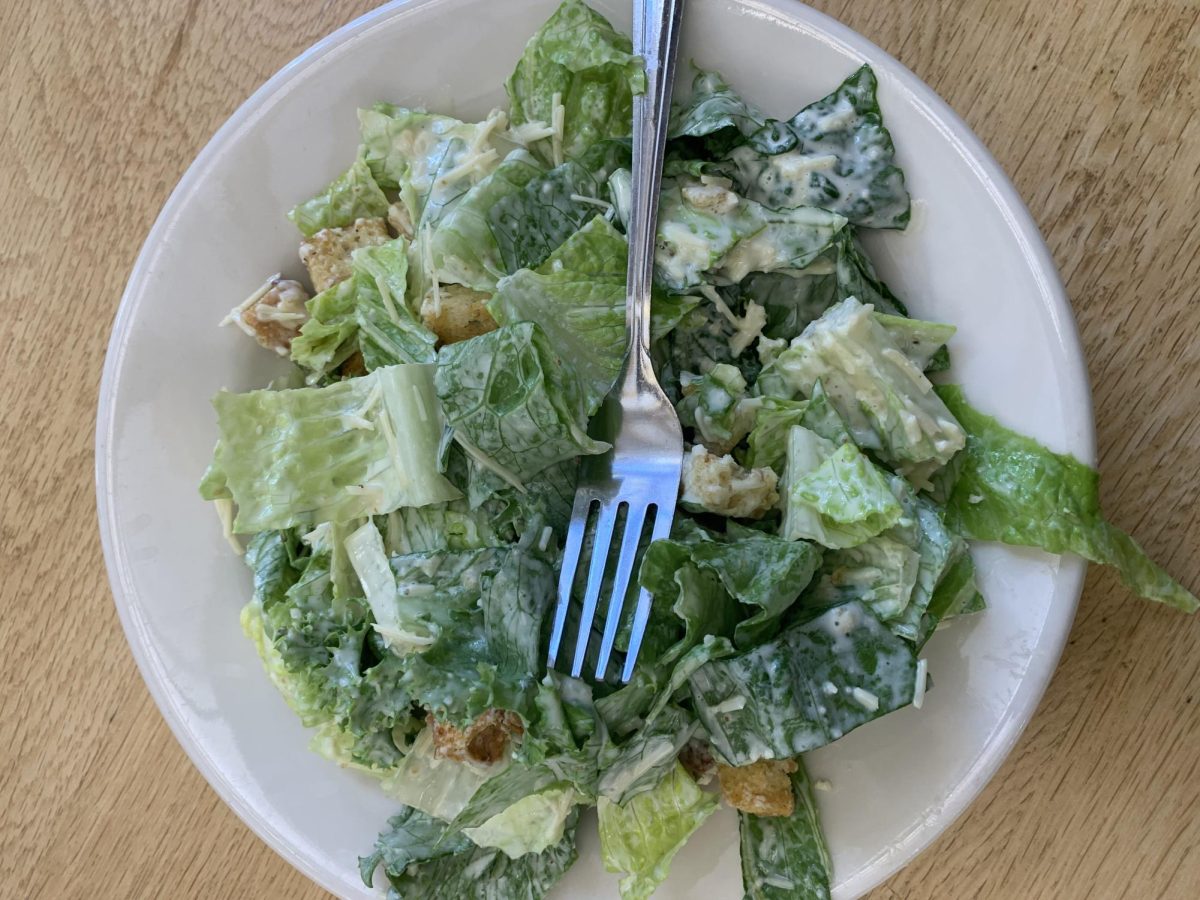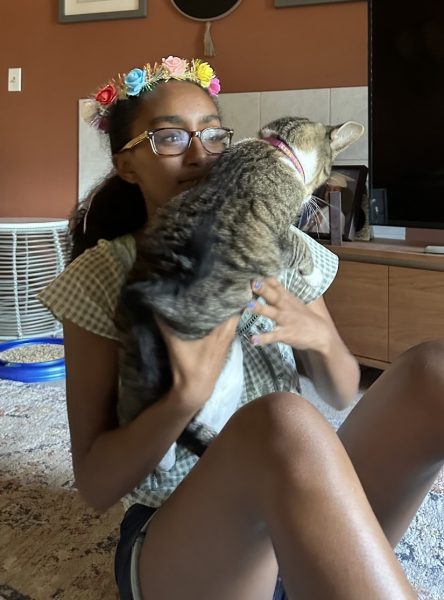I look forward to Mondays. Unlike the critical mass of Lakeside teens who dread the feeling of going back to school after a relaxing week-end, I eagerly await the lunch period that has been dubbed “Meatless Monday.” Because, despite having access to vegetarian options throughout the week, Meatless Mondays are the only day on which I can buy Lakeside’s entrée without the possibility of being served manufactured fake meat or just plain lettuce on a salmon-and-Caesar-salad day.
Yes, I have actually been served these meals. Lakeside’s chefs are more than capable of crafting up some delicious vegetarian food, as is evidenced by Monday lunches, and Lakeside certainly has the resources to get the ingredients to do so ($550,000 per school year is currently allocated toward purchasing kitchen ingredients). But something doesn’t add up. Whenever the vegetarian option is just created as an afterthought to the entrée, it lacks any regard for the vegetarians who will eat it.
Few vegetarian people can truly say they love the taste of meat substitutes. And plain salad or plain baked potato is a disappointing meal to eat while people around you are munching on what I presume to be delectable and hearty seafood or meat.

It’s not just about having a yummy meal to eat, though; having subpar vegetarian options has significant implications for the rest of a student’s day. I have to buy extra snacks to sustain myself throughout the afternoon when the vegetarian lunch is lacking the nutrition I need. On the other hand, I have also just succumbed to buying the more appealing non-vegetarian option a couple of times just to pick out the pieces of chicken in the pasta or take out the meat from the baked potato. One of my friends had to give up on her resolution to be vegan because she felt like she wasn’t getting enough healthy and hearty vegan food — especially not from Lakeside lunches.
Peter Byerlein, who works as part of Lakeside’s food services program, told me that although it’s extra work for the staff to come up with and serve vegetarian meals, it’s all “part of making the circle bigger.” To be clear, it’s not the fault of the kitchen staff that the WCC vegetarian meals are falling through the cracks. The entire set-up of the cafeteria is geared to prioritize meat-eaters as the main customer base, which causes vegetarian meals to be planned as a weak supplement rather than a necessary main course.
Nevertheless, Meatless Monday and Lakeside vegetarian options are here to stay, according to Peter, since there’s a “dedicated base of [vegetarian] people that stays steady [or] rises.”
People are vegetarian (or vegan!) for a variety of reasons — personal preference, religion, food allergies, the environment, etc. Whatever the reason might be, it’s integral that Lakeside upholds their critical value of inclusivity by allowing students to practice vegetarianism on campus.
And that starts with a change to the food we serve in our own WCC.
I’m not asking for gourmet, Michelin-starred food catered to my plate — just vegetarian food that is thoughtful. It’s important to recognize that we need to substitute, not subtract, when coming up with vegetarian options — this means developing viable alternatives to the protein in meals rather than serving the same meal but taking out the meat. Rather than fake meat, we need to start including more plant-based alternatives to beef, pork, and fish: tofu, beans, and additional vegetables are a great start.
Meatless Mondays began as a student-led initiative about 10 years ago, so here’s hoping that students can also initiate better vegetarian options in the WCC.



